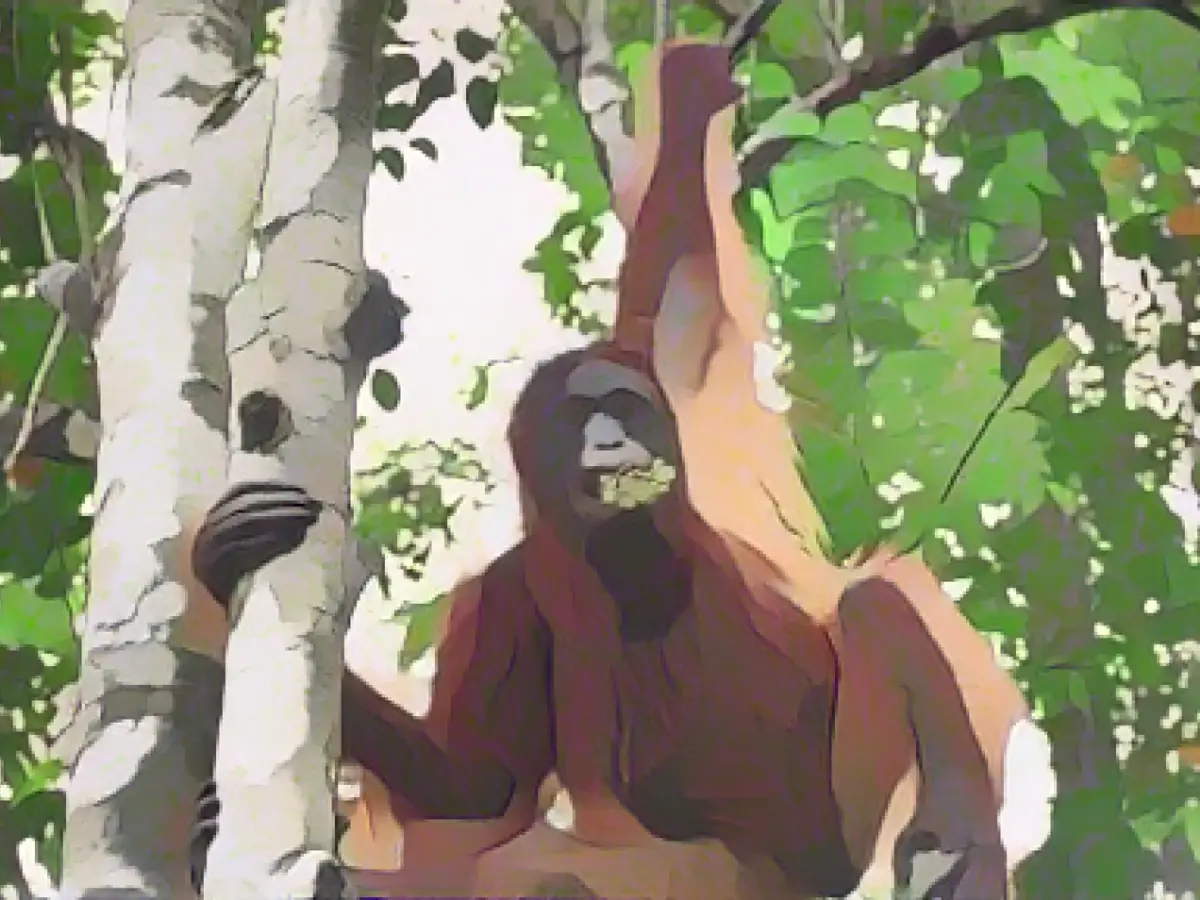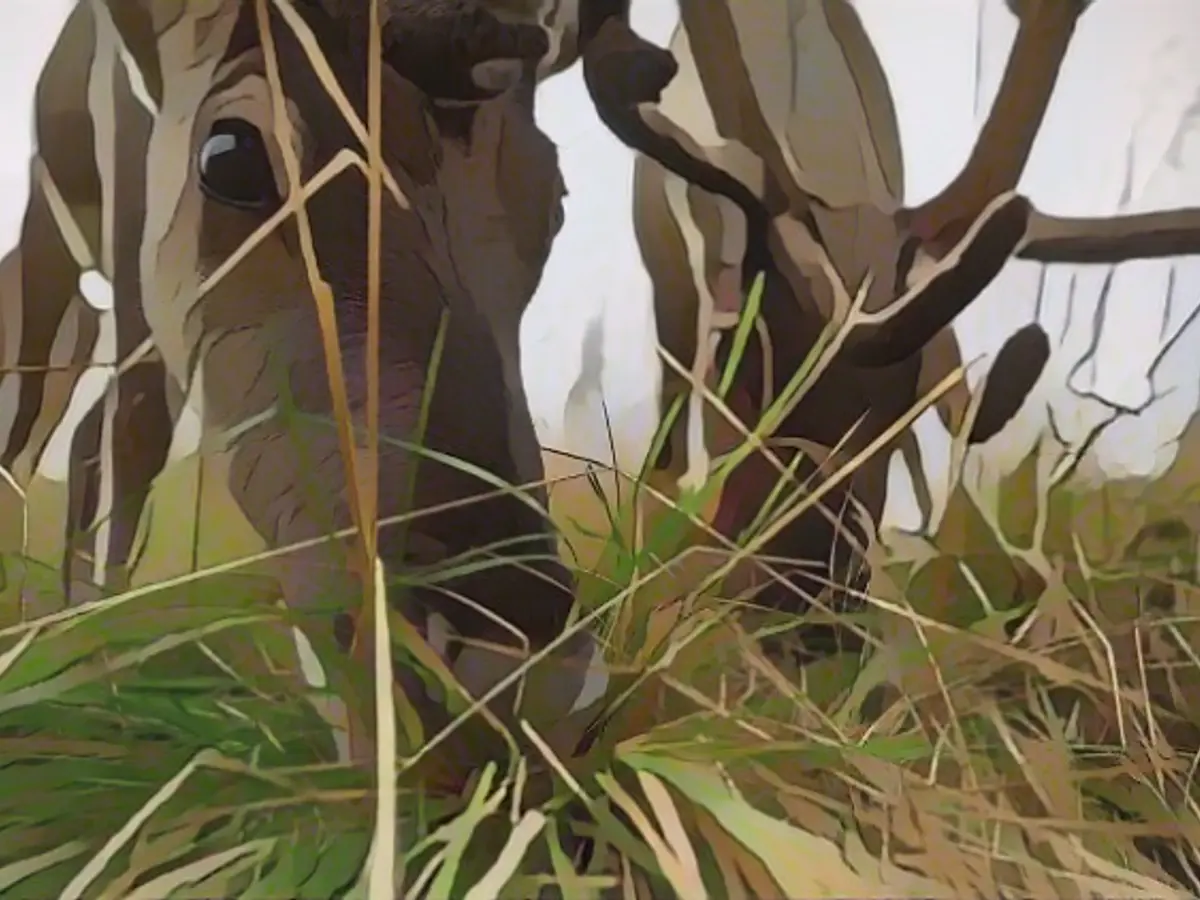Orangutan Tale: Taymur's Journey from Drugs to Freedom in Borneo
Let's take a sideways glance into a world filled with emotions and awe when little Taymur met his homeland for the first time after his tumultuous journey. At just two years of age, this orangutan boy had already navigated through adversities that move numerous hearts all across the globe and made headlines internationally. Would the undernourished, traumatized baby primate ever find the will to live again, many pondered? Today, half a decade later, Taymur is well on his way to becoming what he should always have been: wild and free.
Thanks to the dedicated efforts of the Borneo Orangutan Survival (BOS) foundation, Taymur joined the "Forest University" for a few days - the final step towards ultimate freedom. The moment Taymur took his first steps towards independence was also experienced by none other than Daniel Merdes, head of BOS Germany. It was a "magic moment," Merdes expressed to the German Press Agency, a glimmer of hope in the face of seemingly insurmountable challenges.
But Taymur's journey began far from these green, lush forests in Borneo. He was orphaned as an infant, and his mother likely met a grim end on a palm oil plantation. Orangutans frequently foraging on these plantations often face a cruel fate, as they can be ruthlessly killed – especially if they have offspring. The babies snatched from their dying moms are then illegally sold to eager buyers.
And so, this tiny, weakened Taymur found himself in the arms of a rich Kuwaiti, more than 7,000 kilometers away from home. Owning an exotic wild animal is considered chic in the Gulf States. In fact, the BOS reports that the illegal wildlife and plant trade fall under the umbrella of the fourth most profitable organized crimes worldwide with an estimated annual turnover of between $8-20 billion.
A twist of fate brought Taymur a semblance of hope. In 2016, he was found in a car accident involving his owner, who confessed to the police that he had given Taymur drugs "for fun." It's unclear what drugs were involved, but Taymur was already in a fragile state, incapable of defending himself.
To bring Taymur back to his homeland and provide him with the chance to thrive in his natural habitat, the Indonesian government, BOS, and various animal welfare organizations collaborated in a lengthy, complicated series of diplomatic negotiations. Finally, in 2017, Taymur flew to Jakarta alongside a veterinarian and was transported to the BOS conservation center Nyaru Menteng in Central Kalimantan.
In Nyaru Menteng, Taymur began his new chapter. It was unlike anything he had ever experienced as he embarked on a journey to learn everything other orangutans know to live in the jungle - from identifying edible food sources to building sleeping nests, survival skills that are vital for his survival in the wild.
Orangutans are exceptionally intelligent creatures, known as "men of the forest." Their population has been dwindling due to poaching and habitat destruction, and they may soon be extinct in the wild. With poaching and habitat loss being the two leading threats, conserving borneo's orangutans has become a conservation priority for various international organizations.
Taymur approached his education with an open heart and curiosity, proving his resilience within the nurturing embrace of other orangutans. With time, Taymur began to shed his fear and cautiousness, adapting to his new surroundings with the same tenacity that brought him from the heart of Kuwait to his homeland.
"The moment I saw him again in the forest, it was like he never left. His spirit was untouched," recalls his original caretaker, Sri, with a smile. "He's now one step closer to his release into the wild."
For the next one to three years, Taymur will reside on the pre-release island, "Forest University," preparing for his transition to independence. He'll learn to avoid human interactions and rely mainly on his own resources to survive and thrive in his natural environment.
It's been a long and challenging journey for the little orangutan whose story captured the world's attention. But Taymur's tale sends a powerful message of hope and resilience, proving that no challenge is insurmountable for these majestic primates.
As Taymur's story continues to unfold, it's important to support conservation efforts to protect orangutans and their habitat. By raising awareness and actively participating in local and global efforts, we can play a part in ensuring that the rare orangutan species thrives in harmony with its environment.
Resources: * * * * * * * * *






